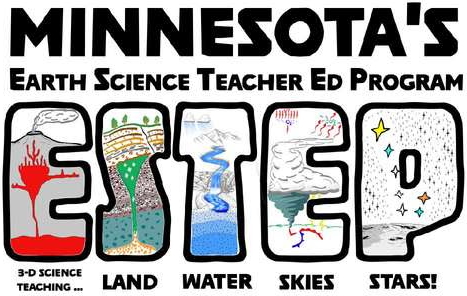Top > MnCOSE 2015 News > Strand Speaker Information
Physics Strand Speaker:
Dr. Nathan Moore
Associate Professor, Physics
Winona State University Winona
Is school-lunch more effective than school? The relevance of proportional reasoning in Physics (and other science classes).
Abstract:
Reasoning ability data taken over the careers of most conference attendees (from the 1970’s to today) shows both a precipitous drop over time and disparate development across students. Specifically and on average, 11 year old children in the UK in 2003 reasoned in a way similar to 7.5 year olds in the 1970’s, and while a typical class shows a spread of physical development of ~ +/- 1 year, a typical 6th grade class spans about 10 years of intellectual development! This leads to the possible claim that perhaps school nutrition programs are more effective in bringing out uniform outcomes than school itself.
After elaborating on this story, the session will dive into proportional reasoning, a fundamental reasoning skill across science, which is a key part of reasoning development. As a group, we’ll work through several proportional reasoning activities, map them to a taxonomy that’s indexed by reasoning level, and discuss how this thinking skill appears in HS Physics contexts.
Elementary Strand Speaker:
Zoe Hastings
Farm to School Coordinator
Minnesota Department of Agriculture
Cultivating Minds with School Gardens
Minnesota Agriculture in the Classroom Workshop
Discover how school gardens can enrich the connections students have with fresh, healthy food while achieving Minnesota’s K-5 academic standards! Participants will complete a variety of hands-on school garden and local food activities that meet academic standards in science. These lessons will serve as a starting point for educators to brainstorm opportunities to use local food, school gardens, and agriculture as tools for contextualizing learning. Free lessons and resources related to school gardens will be shared.
Biology Strand Speaker
Dr. Kelly A. Grussendorf
Minnesota State University, Mankato
Title: Use of the model organism, Caenorhabditis elegans, a small worm that makes big impacts in the classroom and in studies of small biological tubes.
Caenorhabditis elegans is a small worm that has served as a model organism for over 40 years in various studies of genetics, developmental biology, neurobiology and more! Because of themany advantages associated with C. elegans, they have been popular, not only in the research lab, but in the classroom as well. C. elegans allow for students to develop different hypotheses, design experiments and collect data in a short amount of time. In my research lab, we use C. elegans to understand the genetics and molecular mechanisms underlying the development and maintenance of small biological tubes. Tubule formation and maintenance is important in many biological processes and defects in their genetic regulation can result in different disorders, such as cancer and muscular dystrophy. My lab sets out to find and study the genes that are associated with these different disorders.
Earth Science Strand Speaker
Nic Jelinski
Graduate Program for Land and Atmospheric Science
University of Minnesota
Title: "For the Land and Its People: The Importance of Soil Science in a World on Fire"
Soils are diverse, beautiful, interesting, and present excellent opportunities for field classes. Studying soil science in field environments around the world provides a unique perspective of landscapes and a strong connection to human management and cultures. Four tenets of experiential education in soil science that are applicable to earth sciences in general are: Quality, Diversity, Passion and Engagement. These tenets provide focused lines of effort through which to promote positive and perspective-changing views of the world through soil science. Changing entrenched views of cultures and landscapes provides an critical societal role for the study of soils and lies at the heart of experiential education in the earth sciences.
Chemistry Strand Speaker
Roger Kugel, Ph.D.
Visiting Scholar, University of Cincinnati
Professor Emeritus, Saint Mary’s University of Minnesota
Title: Mastering Chemical Concepts:
Knowledge à Skills à Representations à Understanding
The ultimate goal of every chemistry course should be to have students understand on an atomic level what is happening when chemical and physical changes occur in a system. This understanding must be built on a solid foundation of knowledge, skills, and representations. Misconceptions can result from a gap anywhere in this scaffold. The presentation will highlight some of the lessons learned at the 2014 AP Chemistry Reading about how to effectively test students for their conceptual understanding of chemistry and give some suggestions for ways to improve their understanding and dispel their misconceptions.









 Minnesota science teachers should know about:
Minnesota science teachers should know about: